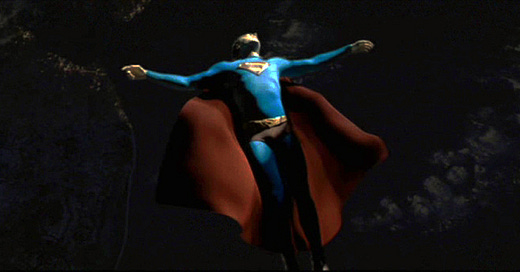Happy birthday to Kirrily, the best wife and mummy in the world!1
Reading 1
Ex 2:1-15a
A certain man of the house of Levi married a Levite woman, who conceived and bore a son. Seeing that he was a goodly child, she hid him for three months. When she could hide him no longer, she took a papyrus basket, daubed it with bitumen and pitch, and putting the child in it, placed it among the reeds on the river bank. His sister stationed herself at a distance to find out what would happen to him.
Pharaoh's daughter came down to the river to bathe, while her maids walked along the river bank. Noticing the basket among the reeds, she sent her handmaid to fetch it. On opening it, she looked, and lo, there was a baby boy, crying! She was moved with pity for him and said, "It is one of the Hebrews' children."
Then his sister asked Pharaoh's daughter, "Shall I go and call one of the Hebrew women to nurse the child for you?"
"Yes, do so," she answered.
So the maiden went and called the child's own mother. Pharaoh's daughter said to her, "Take this child and nurse it for me, and I will repay you." The woman therefore took the child and nursed it. When the child grew, she brought him to Pharaoh's daughter, who adopted him as her son and called him Moses; for she said, "I drew him out of the water."
On one occasion, after Moses had grown up, when he visited his kinsmen and witnessed their forced labor, he saw an Egyptian striking a Hebrew, one of his own kinsmen. Looking about and seeing no one, he slew the Egyptian and hid him in the sand. The next day he went out again, and now two Hebrews were fighting! So he asked the culprit, "Why are you striking your fellow Hebrew?"
But the culprit replied, "Who has appointed you ruler and judge over us? Are you thinking of killing me as you killed the Egyptian?"
Then Moses became afraid and thought, "The affair must certainly be known."
Pharaoh, too, heard of the affair and sought to put Moses to death. But Moses fled from him and stayed in the land of Midian.
The Superman movies frequently make the mistake of associating the Man of Steel with the Son of Man—
In fact, the character, created by to Jewish immigrants, is a Moses figure—he was placed in an ark as a child to save him from death, was adopted by a family who were not like him, yet still able to blend in with their society, and ultimately used his great power to rescue the less fortunate.2
There are more ironies in Moses’ story, however. He was rescued by the daughter of the man who ordered his death, and then returned to his birth mother. He was given power over his own people, and chose to protect them with it. He did the right thing simply because it was the right thing.
Responsorial Psalm
Ps 69:3, 14, 30-31, 33-34
R. Turn to the Lord in your need, and you will live.
I am sunk in the abysmal swamp
where there is no foothold;
I have reached the watery depths;
the flood overwhelms me.
R. Turn to the Lord in your need, and you will live.
But I pray to you, O LORD,
for the time of your favor, O God!
In your great kindness answer me
with your constant help.
R. Turn to the Lord in your need, and you will live.
But I am afflicted and in pain;
let your saving help, O God, protect me;
I will praise the name of God in song,
and I will glorify him with thanksgiving.
R. Turn to the Lord in your need, and you will live.
"See, you lowly ones, and be glad;
you who seek God, may your hearts revive!
For the LORD hears the poor,
and his own who are in bonds he spurns not."
R. Turn to the Lord in your need, and you will live.
The Psalmist doesn’t give up hope, despite affliction and pain, despite sinking into a swamp of misery. He has no foothold, but that’s nothing to God. God can still reach down and rescue us. We should continue singing praise, even in hour our of need.
Alleluia
Ps 95:8
R. Alleluia, alleluia.
If today you hear his voice,
harden not your hearts.
R. Alleluia, alleluia.
Those verse refers to an event later in life, when the Jews demand to know why God took them from Egypt. They saw God part the sea for them, and yet still doubted. We should not harden our hearts in the same way.
Gospel
Mt 11:20-24
Jesus began to reproach the towns where most of his mighty deeds had been done, since they had not repented. "Woe to you, Chorazin! Woe to you, Bethsaida! For if the mighty deeds done in your midst had been done in Tyre and Sidon, they would long ago have repented in sackcloth and ashes. But I tell you, it will be more tolerable for Tyre and Sidon on the day of judgment than for you. And as for you, Capernaum: Will you be exalted to heaven? You will go down to the netherworld. For if the mighty deeds done in your midst had been done in Sodom, it would have remained until this day. But I tell you, it will be more tolerable for the land of Sodom on the day of judgment than for you."
The scene takes place after John the Baptist, in prison, sent his followers to see if Jesus was truly the Messiah.3
Jesus sounds a little bit sick of people questioning him. He’s performing miracles. How are people still doubting?
Yet, like with the Psalm, it happens all the time. We see wonders all around us—sunshine, flowers, children playing. Every day, we see someone being kind to a stranger for no reason other than it’s the right thing to do. We see charity and humility and faithfulness, if we just look and listen for the miracles in our midst.
I don’t think she reads these, or she’d get annoyed with me for posting a picture of her.
And unlike most idealized heroes of the time, he had dark, black hair, not blonde.
Mt 11:2-11, as read on the 3rd Sunday of Advent.





